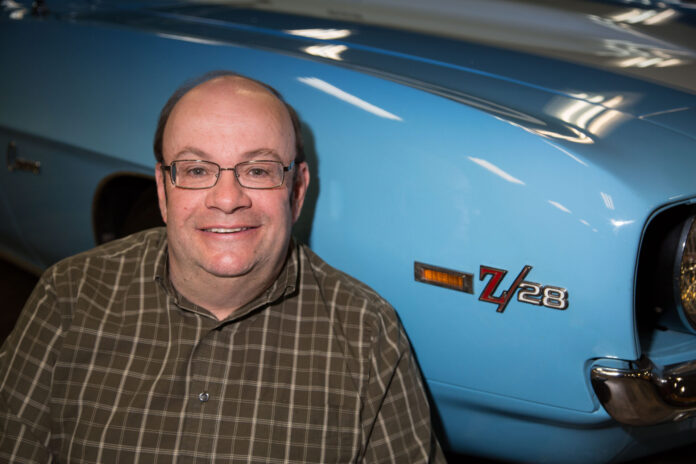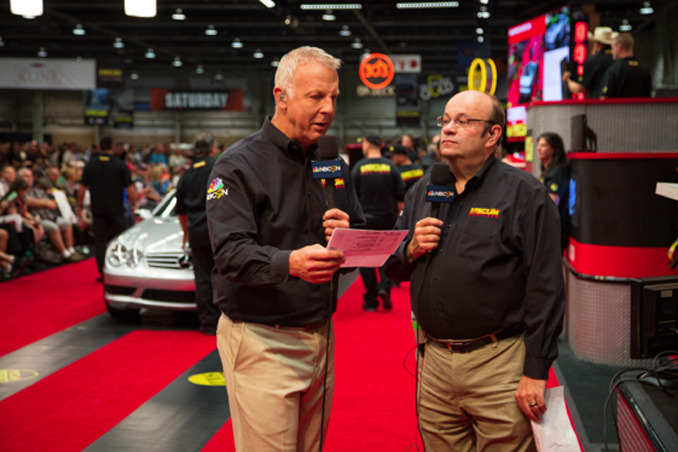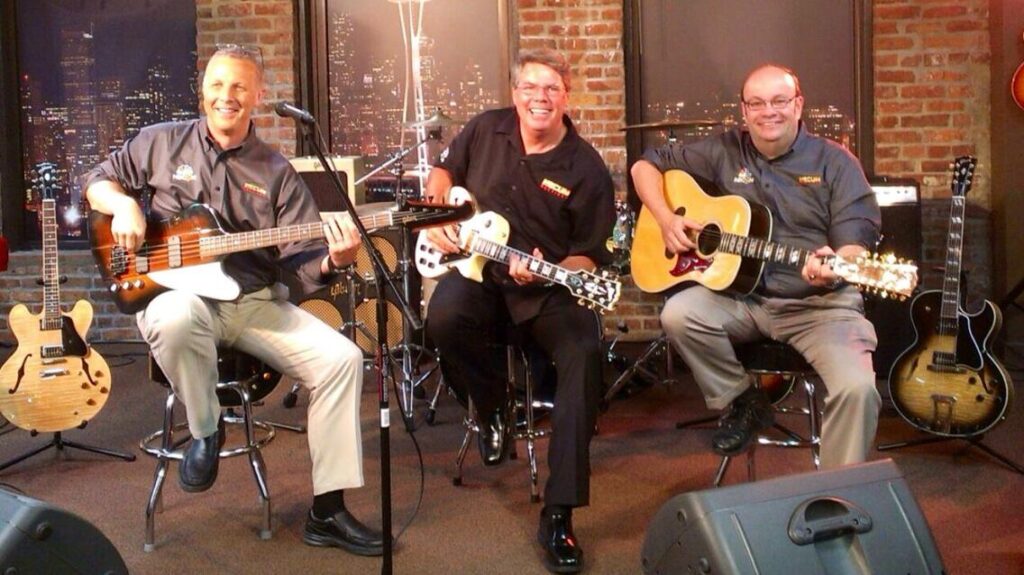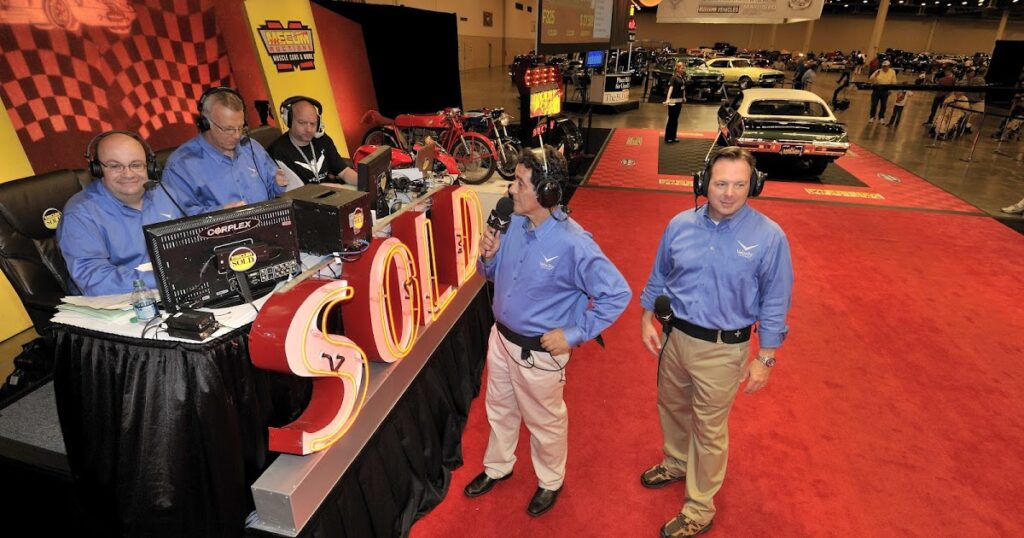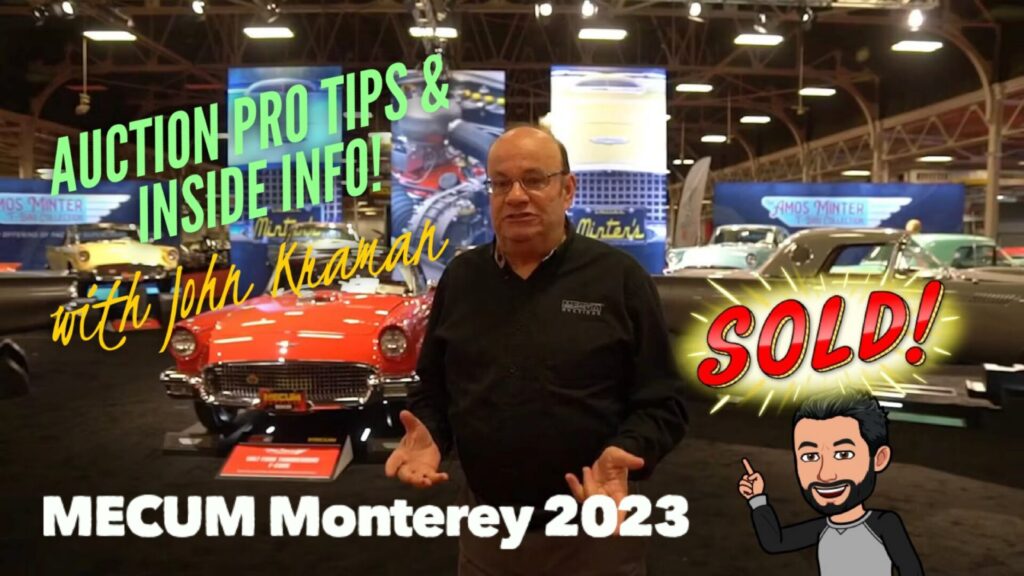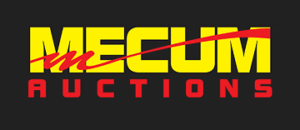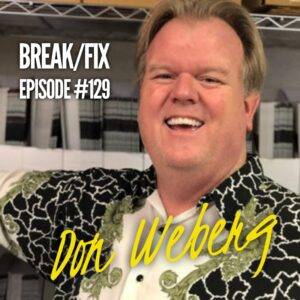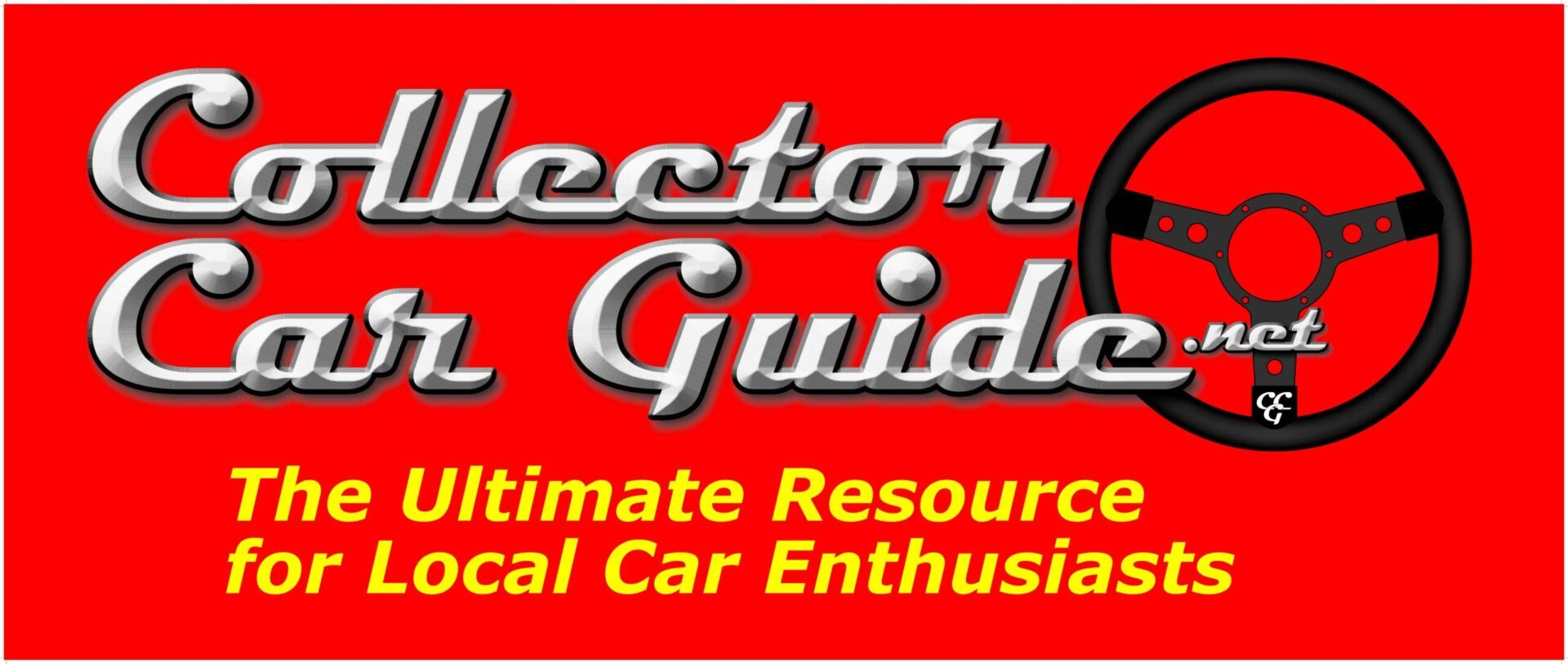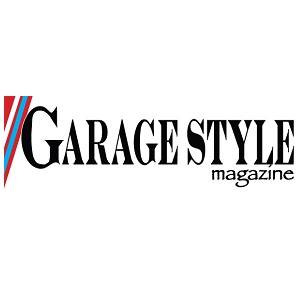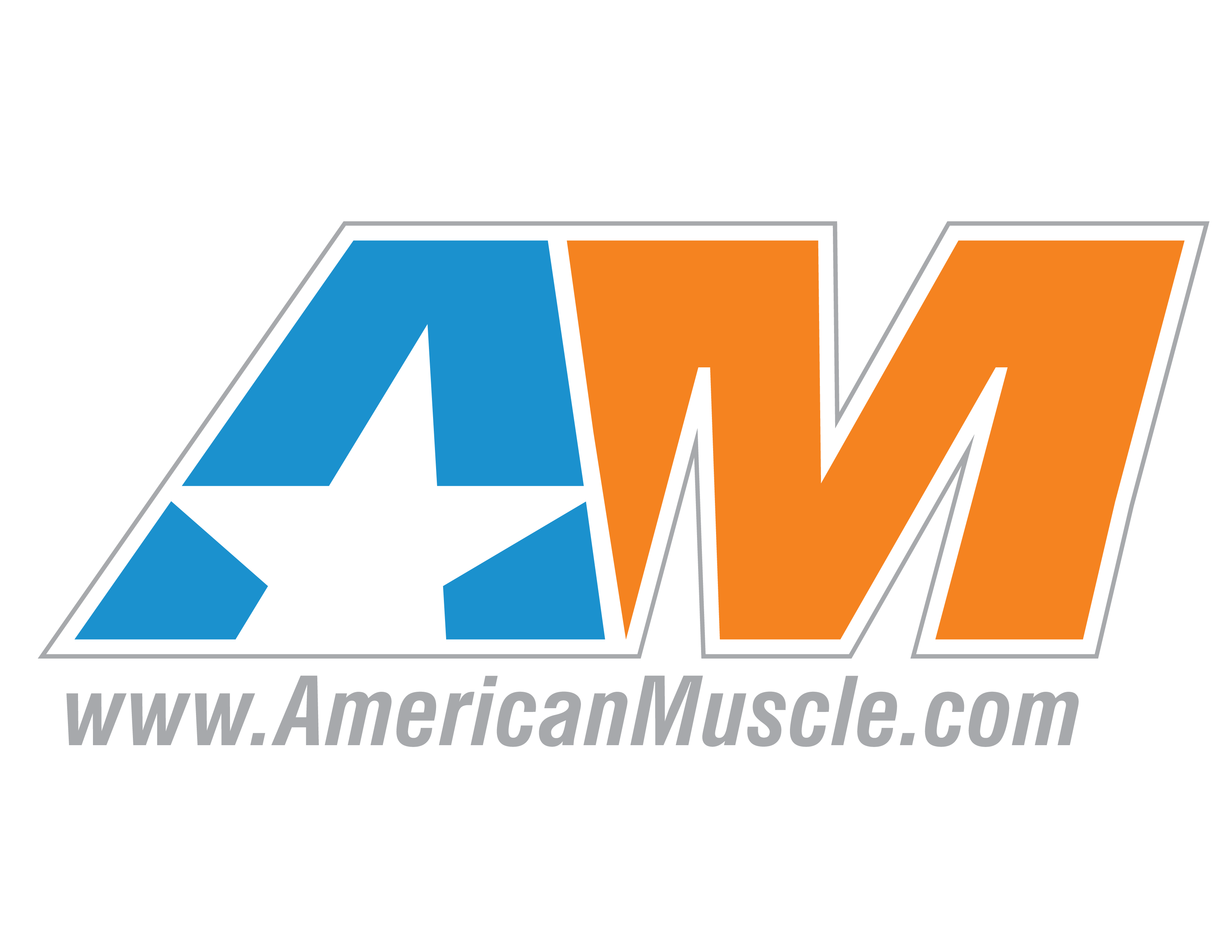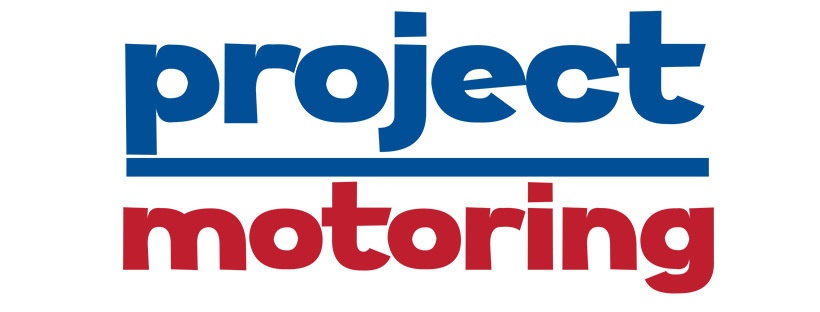Raised in auto-obsessed Los Angeles during the 1960s and ‘70s, our guest spent his youth hanging around the dealerships where his dad sold cars. This experience bred a lifelong interest in both the cars and the business of selling them. He enjoyed a long and successful career first as a sales manager for retail auto sales, and later shifting gears to work in aircraft sales.
Joining the Mecum team in 2006, John Kraman served as the co-director of consignments for Mecum Auctions alongside Frank Mecum. Beginning in 2008 and continuing today, Kraman has been the commentator of Mecum Auctions broadcast on NBC Sports Network, MotorTrend TV and others. And he’s here to tell us all about his fascinating career journey in the world of classic cars and broadcasting.
Spotlight
John Kraman - Commentator for MECUM Auctions
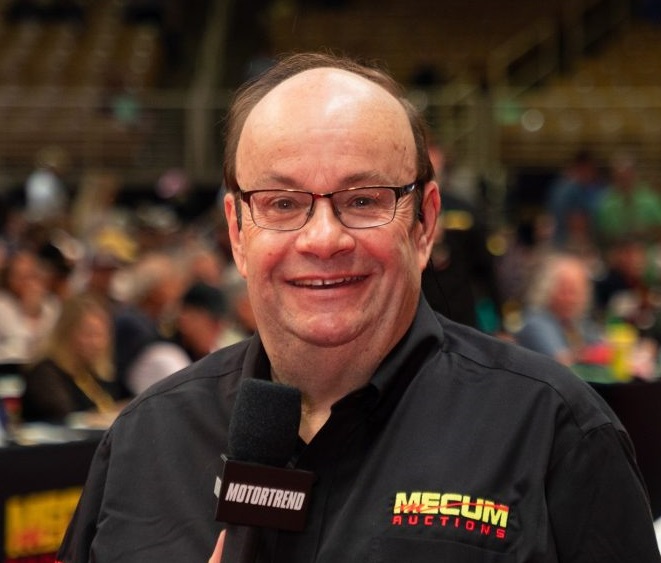
Before joining the Mecum team in 2006, Kraman enjoyed a long and successful career first as a sales manager for retail auto sales, and later shifting gears to work in aircraft sales. Kraman is also a licensed Federal Aviation Administration pilot and mechanic. From 2006-2017, Kraman served as the co-director of consignments for Mecum Auctions alongside Frank Mecum. Beginning in 2008 and continuing today, Kraman has been the commentator of Mecum Auctions broadcast on NBC Sports Network.
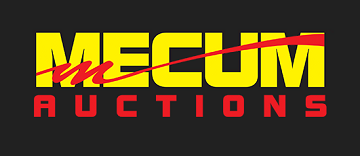
Contact: John Kraman at jkraman@mecum.com | N/A | Visit Online!![]()
![]()
![]()
![]()
![]()
Notes
- Growing up a California native and spending your formative years there, you have to have been exposed to a number of spectacular cars – what are some that you’ve owned, what are some favorites from that era? what are some of the dream cars, and why those cars? Tell us about the worst cars? What do you think the ugliest car ever built might be?
- Working with Frank Mecum, you were DoS, what did that job entail? How did that transition come from DoS to voice of Mecum? That sounds like a very drastic shift in roles.
- When you’re at an auction cars are coming on and off the blocks, and if you watch the MECUM broadcasts, it’s almost like watching a baseball or basketball game and you are the sportscaster… You must have encyclopedic knowledge on all these cars? How can you speak to each one that goes by in detail? How do you do it?
- Let’s focus on some of the different Auctions you cover. You’re traveling all over the country going to these events. How do you make them unique or emphasize them when you’re there? How do you differentiate (or highlight) them.
- Evolution of Auctions? (John has been there nearly 20 years); what has he seen change? What has shaken up the auction world? Was it mostly the introduction of online sales?
and much, much more!
Transcript
[00:00:00] Hello and welcome to the Gran Touring Motor Sports Podcast Break Fix, where we’re always fixing to break into something motor sports related.
Raised an auto obsessed Los Angeles during the 1960s and seventies. Our guests spent his youth hanging around the dealerships where his dad sold cars. This experience bred a lifelong interest in both the cars and the business of selling them, and he’s enjoyed a long and successful career. First as a sales manager for retail autos, and later shifting gears to work in aircraft.
Joining the ME team in 2006, John Kramon served as the co-director of Consignments for Mecu Auctions alongside Frank Mecu, beginning in 2008 and continuing today, Kramon has been the commentator of Mecu Auctions broadcast on N B C Sports Network, MotorTrend TV, and others, and he is here to tell us about his fascinating career journey in the world of classic cars and broadcasting.
Thanks Don. And with [00:01:00] that, let’s welcome John Reman to break fix. Hey guys. Matt, I just wanna say thank you so much for taking some time to have me on your show. Always a pleasure. My illustrious co-host tonight is Don Webert from Garage Style Magazine. So welcome back Don. Thank you for having me. One of my favorite magazines, by the way, Don Love the publication Me Coming Garage Style.
I’ve been together for a long, long time. It’s interesting, Eric and I were talking about, my God, has it been that long? You know, which is really kind of interesting. Let’s get to it then. Gentlemen, like all good break, fix stories. Everybody has a superhero origin. So let’s talk about young John Reman, the Petrolhead growing up in la growing up a California native, spending.
Your formative years there, you’ve been exposed to so many spectacular cars, and what led up to your involvement? At Mecom. You know, I was lucky, like a lot of people, like a lot of classic boomers, always just fascinated with cars. But I had a big advantage growing up in Southern California during the time period where the Corvette was starting to come on its own, the invention of the muscle car.
And I was [00:02:00] right there as a little kid just soaking up and absorbing all the nuance of that in real time when it was happening. My dad worked for a very well-known Pontiac dealership in North Hollywood, California in Lankershim called Harry Maher Pontiac. I mean, a legendary dealership supplying a lot of vehicles to the movie TV industry as they were right down the street there from all the studios and that auto dealership.
By the way, that was the used car scene. We all remember the movie Psycho and the famous used car scene. Well that was filmed right there here, MHAR Cadillac, 1960, a few years before my dad started working there. But that dealership still exists today. Wouldn’t you know it? And that building shown in Psycho is still there.
It is now Universal. B m W Mini isn’t that typical of how things evolve and how things happen? So anyway, as a little kid growing up there, I used to literally hang out at the dealership, talk to customers, look at the cars, read the brochures. I became fascinated with the whole culture of cars, selling cars, servicing cars.
Being in the automobile [00:03:00] dealership. It was kind of my happy place as a kid. Never thinking that all these years later, that that enthusiasm and a little bit of that knowledge would be useful for my role at Mecu. Never planned on that. Just a little kid. Loving cars running between the aisles of cars at the Pontiac dealership.
Yeah, here you are, young John in the mid sixties and the G T O. Hits the showroom floor. What is your first impression? Totally blown away. That car left such an impression on me as a youngster that in July of 1976, when I was attended 19 years old, I bought a 1964 Pontiac g t o, and I still own that exact car today.
Oh wow. Yeah. Almost 50 years later. Nice. What color? Cameo Ivory, which is white with a dark aqua interior and it’s a two door hard top body south, three to nine, tri power, four speed. Just like the song. Wow. Yeah. So anyway, that set the stage for my obsession with cars, and I remember my dad actually having me talk to customers.
[00:04:00] Explain. Of course, cars were a lot simpler then various features, options. I had the options list memorized, the different engines, the transmissions, the gear ratios, what it all meant. And there were actually several times that I can recall. My dad tells a story completely differently that I did all the work.
But I remember adding my 2 cents on several of the deals that my dad actually got put together. And he always said that they kind of took pity on a guy with a young kid there that was hanging out the dealership. But the reality is, No place else. I would rather be, my dad continued to sell cars. He eventually went and sold automobiles right down the street at Pioneer Oldsmobile.
Now that’s North Hollywood. Toyota, one of the biggest Toyota dealerships in the San Fernando Valley. Maybe the biggest in the valley, one of the biggest in LA I think. So that kind of goes without saying as well that the evolution of the new world has occurred. Pontiac and Oldsmobile both gone now replaced by very popular imports.
It’s fun for me. Every once in a while, I get back out there and I go around my own stomping grounds and go past the old Barris Custom City. George Barris, of course, king of the Customizers, had his shop [00:05:00] there, saw the Batmobile go together within a matter of a couple weeks and saw it on the TV show and got to know George later.
And I’m still friends with Joji, his daughter to this day. I still continue to tap into the influence and all of the really cool stuff that was going on back in that time period. You know, music, fashion cars, there were civil rights that were changing as well, that were much needed. All the press of the Vietnam War, I tried to kind of discount that that was a little bit over my head and stay focused on the cars and then all the pop culture stuff as well, and it was a heck of a decade to be this wide-eyed kid really just picking up on all the nuance of it.
Our bottom line, of course of that is it set me up to do what I do and it’s go on TV and. Talk about cars and kind of what was happening back in the eras, the fifties and the sixties and the seventies. Pontiac and Oldsmobile, two brands that are no longer with us, and you said they were replaced by more popular imports.
That begs the question, were there other cars outside of the Pontiac and Oldsmobile dealership that got your attention? Is there something more beautiful than the G T O? Well, actually there’s a [00:06:00] couple and like a lot of youngsters and even those folks that aren’t so young, the first time that they got a glimpse of the all new Chevrolet Stingray in 1963 was a game changer for me.
And I remember it vividly. It was a saddle tan coop with a matching interior, and I remember looking inside it and thinking it had a manual transmission in it. Dawned on me that, no, wait a minute, it looks like a manual transmission shifter, but it was actually an automatic and always point that out on our TV show from time to time when I see one.
But that 63 Corvette to this day continues just to captivate me with its design and style, the futuristic look, and I’m not the only one. And while I’ve owned three Corvettes at 72 a 2010, and a. Mid-engine cars, it’s 2020. That 63 Corvette has always just been a little bit out of my reach. It just every year they go up and up.
Maybe I’ll have one someday, but I’ve got a nice collection of plastic replicas and for right now, that’s gonna have to do, but another car or two that really made a huge impact on me was the Ford Mustang coming out about the same time that the G G O did. But interestingly, it wasn’t the convertible in the coop that first came out in April, 1964 that left a memory [00:07:00] is when I saw the first.
Fastback two plus two, which came out about six months later. And that car means so much to me that eventually I succumbed to the blue oval. Bought one of the retro style modern era Mustangs. The uh, SS 1 97 platform 2014, the last year coop ordered it. Black with the coyote, five liter and a six speeds a gt.
And that car’s got 25,000 miles on it and I love it. And that will always be a part of my collection as well. And the fact that it kind of looks vintage esque in a lot of the different clues helps me kind of connect the dot from the modern era back to the vintage day, but yet with all the performance and reliability and serviceability of a modern car.
And then the final car I wanna mention, I’m gonna do a shout out thanks to the folks at. Pioneer Oldsmobile. Long gone now was the very first 1966 Oldsmobile tornado that I saw, the landmark front wheel drive car that debuted, of course in late 1965. I remember seeing the first one at the dealership. It was turquoise.
The wheel arches, the long hood, the short deck, the rotating drum speedometer, the flat floor and the front, because it’s front wheel [00:08:00] drive, no transmission hump or drive shaft. To this day, I consider that to be one of the most beautiful cars ever. It did win MotorTrend car, the. Car of the year, by the way, I don’t own a tornado, but that would be one I would probably have on my shortlist.
If I could get some space in my six car garage, which is currently full. You’d need quite a bit of space for the tornado. Yeah, it’s a big car. They’re not all winners. John, I think we can all agree on that. Is there a car that sort of gets under your skin, something you just, you can’t stand, you don’t like?
Well, how about the car that my dad brought home for me to go take my driver’s license test in? All right. Being a car salesman. Back in those days, they had demos and they could drive a car off a lot. I don’t think that they do that much anymore. Maybe some of the higher ranking sales managers who get to drive a vehicle.
But I think the rank and file salespeople, I think that perk is long gone. So my dad, he brings home for me off of the used car lot, 1972 Chevrolet. Vega, oh, sedan beige with a three speed, not a four speed, but a [00:09:00] three speed manual transmission on the floor, and I only had a limited amount of time driving a manual shift car.
Bottom line is I took that car and I got my driver’s license and I passed my test. Thank goodness to this date, I’ve got kind of a love hate relationship with the Chevy Vega. It was the car I got my license in, but on the other hand, it’s turned out to be. One of the worst cars ever built. Certainly the powertrain was pretty poor.
The aluminum block with a cast iron cylinder head with the dissimilar metal of those two completely different materials, and that heavy head caused a tremendous amount of head gasket problems. And then you didn’t have any cylinder liners, so the rings would wear into that aluminum bore almost instantly.
Terrible engine. I’m gonna vote for the Chevy Vega is my car that I. Don’t miss growing up amidst the deep seated car culture in Southern California. Everywhere you turn, yeah. Every block you walk down, every street corner, there’s something different, something unique. A movie stars driving this, regular guy’s driving that the doctor just bought a Ferrari.
You know, all these kinds of things. Yeah. If you didn’t grow up on one of the two coasts, You kind of [00:10:00] missed out, right? It was basically Chevy, Ford, or Mopar. What you gonna order this week? Mm-hmm. You know, kind of thing. But at some point all of us have to grow up. We’re gonna get deep into your Mecu career as well, but you said you worked in sales, you worked with your dad and things, but what did you go to school to do and how did that lend itself towards your future?
I was one of those guys that was fortunate enough to realize that one way or another I was gonna have something to do with cars. By the time that I got into high school, I took every auto shop class that I could possibly take, and I just wanna say in the public school system now, those are really hard to find, but back in the day, this would’ve been the early seventies.
Pretty much every school had them, and I took full advantage of that in my senior year. I was able to actually go to, we called it VO-tech. I went, and that was three hours a day I went to auto shop and I mean, we did literally everything from A to Z. The only thing that I didn’t do was body work, but from a mechanical standpoint, doing everything from A to Z engines, transmissions, you know, rear ends.
And we would work on other people’s cars, students, cars, teachers, cars, outside cars. And while I was doing that, [00:11:00] I worked for a very prominent high performance speed shop called Sterling Speed Engineering. Now this time, In my junior high school, we’d actually moved from California, two of all places, Rockford, Illinois, which is actually where I was born.
But we moved to California and I was five, so we moved back to the Midwest and I worked in a speed shop that’s still very well known today and cut my teeth on working in the machine shop on the high performance engines of that time period. Everything from Hemis and big block Chevys, small block Chevys, you know, pretty much everything across the board.
The Ford FE engines, a lot of 4 27 Ford engines. And being able to be hands-on with that. Also, over the years has given me a lot of insight, a lot of background, a lot of experience to be able to talk about all of this. We’re talking 50 years later now. All of that worked to make me this, obviously this pretty well versed car kid, but at age 19, My career took a different path.
I became an aircraft mechanic because a friend of mine that lived behind me worked at an engine overhaul shop that overhauled aircraft engines, and he said, we’re hiring people like [00:12:00] crazy. And I, when I talked to his boss, he hired me immediately. So I had a really good career. Eventually, I got my pilot’s license and I learned to fly.
And then I transitioned, took my sales enthusiasm and sold airplanes, and I did that actually for 20 years. From 1986 to 2 0 0 6, I sold airplanes and worked on ’em as a mechanic, as an instructor, as a pilot, and an aviation enthusiast. Again, being very mechanically oriented, that helped. Being a pilot obviously helped, and understanding the sales process helped as well, and that’s where my background with Mecu M started.
2 0 0 6. A fellow pilot, David Burrows, who’s the founder of Bloomington Gold. Very well-known guy, both in the Corvette world, and then of course in the aviation world. He is a steerman where we’re two trainer enthusiasts, and he’s an instructor pilot and a formation pilot in that group, and still does that to this day.
Anyway, long story short, he put. Dana and I together, he knew I was his car geek and an airplane geek, and I spent about 15 minutes talking to Dana and boom, he said, John, I’m looking to expand this business, looking to get some people that can help me. He said, we’re a big auction company now. We’ll do [00:13:00] about $80 million in sales this year.
This was 2006. He said, I’d like to build this business up to be 125. So fast forward to 2022. I’m proud to say that Mecom Auctions generated ready for this guys $785 million in the sale collector vehicles calendar year 2022. That’s not that far off of our target now of $1 billion. It’s been one wild, crazy ride, guys, I can tell you that.
Wow. Almost a billion. Mm-hmm. Unbelievable. Yeah, that’s a lot of Corvettes. Corvettes are the number one most popular single model of the entire Mecca Auction block. Corvettes are number one representing roughly about 10% of the total inventory. So man, you’re right. A lot of Corvettes. I always make that joke ’cause you probably know I write some of the descriptions for me.
Yes, you do. Yep. And I come from a blue oval family, so I’m much more comfortable with blue oval stuff. It’s funny how many Chevys I’ve written working for Mecu, and [00:14:00] it’s funny, it’s gotten to a point now. I think I know more now about Chevys than I do Fords, which is really, really interesting. But I was just telling Eric the other day, he and I were bantering it back and forth, you know, nine 11 versus Corvette, and I found myself in the corner of the Corvette and this and this and this, and this.
In the back of my mind, I’m sitting there. Why do I know so much about cor? Oh, MECU, of course. You know, it’s really kind of funny the way it just all rubbed off. So yeah, when you go back through and you look at all the Corvettes, MECU is sold, it’s insanity. How many Corvettes go through Mecu? You know how we settled that debate, John?
Huh? It’ll never be settled, so I’m really anxious to hear how you guys resolved it. The answer was Dodge Viper, a c r 2016. Oh yeah. Pivot. Love it. We need that tie killer. You know, I love that. I mean, that’s a classic battle man. Since the nine 11 came out in 1965, what a sensation that car has been, and I love both cars.
Biggest advantage the Corvette has over the nine 11 typically is value. It’s a less expensive car, right? So if you’re looking, you know, bang for the buck, [00:15:00] Corvette’s got the edge, arguably. But if you’re looking for, obviously world-class distinctive car with a rich history, It’s pretty hard to go wrong with a nine 11, and I think the resale value of those things prove that point.
In a perfect world, you’d have one or multiples of each. That 63 Corvette I mentioned earlier that kind of drove home the point for me that I wanted Corvettes to be a part of my life. And I’ll tell you, I, I just adore ’em. They’re just something about being behind the wheel of those cars, three different distinct generations.
I love them all equally, and they all take me to a different place when I’m behind the wheel. All of them are equally the place that I wanna be just at different times. Very fun. They all are amazing. Nine 11 Corvette, any of them. And it’s funny, we can argue till Kingdom come and literally still not have a winner because both of us are Right.
Right. You know, and then, yeah, have the viper guy step in and what the heck? We’ll have a three for all. None of us are gonna be exactly wrong. We just have different, you know, it’s amazing. It really, really is. But you know, if you really want to talk great cars, John. And I think Eric will agree with me here [00:16:00] on this.
You know, it really comes down to it. Chryslers TC by Maserati. It gets no better. Am I right? Here we go again. I’ve got a good story about one of those I knew you would. We do about 35,000 cars a year. We are of course, the Indisputed World’s largest collector car auction company by far. So yes, we’ve had the Maserati tcs, and this goes back probably at least a dozen years ago.
It was on TV and it brought like $6,000. Which, depending on the condition, it’s still a $6,000 car. The guy that bought the car was next to his buddy, and I don’t know why the camera, the microphone was on these guys, but his buddy says, Hey man. He said, I didn’t know you wanted that car. Did you really want that car?
And he looked over to his buddy, clears the bell and said, no, not really. I just wanted the hat. Back in that time period, you’d buy a car and you’d sign the bid sheet and the gals would give you a mecu hat. It was hysterical, and to this day we still talk about that and make jokes about that. One of the great moments in Mecu history, we’ll never forget, [00:17:00] it’s kind of like the scene from Caddy Shack, then the pro shop buying supplies, the judge has got, you know, that real ugly, corny hat on, and Rodney Dangerfield looks over and says, Hey, look at that hat.
I bet you get a free bowl of soup with that hat. Same kind of a deal. Same kind of a deal. Looks good on you though, you know? Right. That’s the scene. Yeah. You know, one thing we’ve had on our mind, John, is how on earth do you go from the director of sales to the voice of Mecu? How do you transition from signing people up to sell their cars?
Which I, I assume that’s what Director of Sales does exactly to. Now you’re gonna be the voice of Mecu. How’d you do that? You know, I have to give all the credit to Dana Mecu. Dana Mecu is the company founder. He started Mecom Auctions in 1988, so we’re celebrating 36 years of Mecu Auctions this year. It was him and his wife, Patty Boys were little.
In fact, all four sons heavily involved in the business right now. He had a dream that he wanted to do this auction company, and it started to get some good momentum going. I got. Started with the company in [00:18:00] 2 0 0 6 and in 2 0 0 8 we went on television and Danny came to me and goes, Hey John. He said, just put together a deal for a TV show.
And I thought, oh, that’s good. That’ll really increase our business. Our visibility will go way up. I said, smart move. Smart move. Never dreaming or thinking about it for even One second guys. That I would be on this TV show. I don’t have any experience. I never did tv. I had no idea what it entailed. And he said to me, and I think you would be a good guy to be on the show.
I kind of had this panic just sort of overwhelm me because I don’t wanna disappoint the boss, but I also don’t know anything about being on tv. He says, I’ve talked to the producer, his name is Terry Langner. He is a well known automotive producer by the way. He said, I talked to Terry and he wants you to come to his studio in Indianapolis, do a little kind of a mock screen test.
And I said, alright. So I went down there. At the time, this was 2008, Terry Langner was the producer and his company was producing Bear Jackson. He. It just so happened that he had hours and hours and hours of footage, both audio and video footage. So [00:19:00] he put video up on his screen, slapped a headphone on me, and took the audio out and said, as these cars come up, just talk about the cars.
I think three cars popped up and I remember two of them. The first one that came up was a 68 road runner. We can talk three hours on a six eight road runner, right? The second car that comes up was a 67 Corvette and it had a big block hood, and I didn’t know which engine it had, of course, but I knew it was a 67 Corvette convertible with the big block hood.
Again, an easy car to talk about and I, I’d correctly, the cars gave a little bit of background in the significance of both cars, and Terry was talking to me on the headset and he goes, man, he said, wow. He said, You know these cars. And I said, well, I am a car guy. And he goes, but here’s the deal. To be on tv, you have to be able to listen and take timing commands for commercial breaks and all these other things and feature ets and we’re gonna, let’s listen in all these different things.
But yet you have to continue your thought and not stop talking. When somebody’s talking in your ear, can you do that? And I said, well, I don’t know. And he goes, well, let’s try it. So another car rolls up, I forget what it was, [00:20:00] and I’m talking about it. And he says, okay, well we have to go to commercial break in 30 seconds.
And. All I can think of was somebody’s talking to me, stop talking. I didn’t want to talk all over him. So he goes, no, no, no, John. He said, you can’t do that. You gotta finish your thought. You got time to finish your thought. And we struggled with it for about 20 minutes. He goes, you think you could do it?
And I said, Terry, I don’t know. He said, let’s give it a try on the show. Fast forward to the first show. I can’t tell you when it kind of crossed over, but he told me before I went there, he said, John, you need to keep one thing in mind. You’re the car guy. All the other people you’re gonna be working with, they’re experienced television talking heads.
You’re the car guy. All you need to do is sit back and talk cars. And that’s when it hit me, guys, that, well, I’ve been spending my whole life talking cars. One of the only things I know how to do. Anyway, we gave it a shot and here we are now, guys, 16 years later, hit TV show or second year with MotorTrend.
I’m the lead TV commentator, analyst. I’ve transitioned away starting in 2017, away from being, uh, director of Consignments along with Frank Comb. Into director of company relations, being the [00:21:00] company spokesperson, attending a lot of car shows and events and speaking, lot of interviews, podcasts, which takes up almost all of my time.
I dunno how I had time to handle consignments, but the bottom line is the company has grown radically over the years, and certainly our exposure on television has. Been a huge part of that obviously, but for me personally, imagine this car guy growing up in California and the stars aligning perfectly to the point where I’m the guy representing the rank and file car guy.
Guys like you maybe that are not on tv. You just gotta know, man, I’ve got your back. Two things, I wanna make sure that the dialogue is accurate and I wanna make sure that the dialogue is relevant and sometimes I steer the show a little bit if the other guys start getting off into a different direction that may not be either accurate or relevant.
I gently and quietly come in and kind of reel the conversation back in all these years later, we’re very respected as not only being a great auction company, a great company to do business with, but also real true enthusiasts and real true car [00:22:00] guys. And I think that resonates with a lot of the folks out there that are car guys that sometimes get disappointed with how cars and how car people and all that stuff are portrayed on television, especially when there’s inaccurate information being portrayed.
Not on my watch. You know when you’re out there commentating, you’re doing your thing on the tv, you’re talking about that Roadrunner, the vet, the Viper, whatever it is, how much of that is Kramon and how much of that is Google? Do you have computer assistant there? Do you have that? How does that work?
Remember what I said earlier that Terry Lingerer, the first producer who ended up producing, I don’t know, maybe the first three, four seasons of us, Jerry Lingerer told me, John, all you gotta do, sit back and talk cars. No, I don’t have a computer. I don’t have one there up at our announce booth. I do have the description of the car that’s as supplied by the consignor that everybody else has access to.
The public has access to that. It’s up on the website. It’s up on the bid screen. I do have that in front of me when there’s information on it. Sometimes a wife might consign a car that morning and her husband passed away the week before and she needs to sell the [00:23:00] car and she doesn’t know anything about it.
It’s a sad tale. We don’t talk about that on the show, but that happens. And then sometimes the information as it’s relayed isn’t always accurate, so I have to kind of check it on the fly. But all the other tidbits, all the historical background and the facts and the figures and the production numbers and colors and engine sizes and options, and why this is an important car.
All of that’s 100%. Sit back, relax, talk cars. Now keep in mind you think, oh, that’s impressive. Cars on the auction block less than two minutes and we have a lot of ground to cover on that car, including some of the bidding action. It’s not like I have to do a half hour documentary on the car. I would probably do some research if I was going to do that on a specific car.
We wanted to make it feel like it’s car guys sitting around talking cars. Not reading off the script, which we’re not, not reading off a computer screen, which we’re not, and I don’t even have access to Google. Now, I do typically have my cell phone up there with me, but I will tell you the cards come up in the auction block and leave so quickly.
As we’re doing about 350 cars a day, there’s no time even to input and put it in. If I don’t know something, [00:24:00] I just won’t say it. I will stay within my knowledge box. Fortunately, there’s enough there to cover what I need to cover. Given what you’ve just said, I’m assuming you’re relying a lot on that camera.
The camera that’s down, looking at the car going over hundred percent. You’re probably looking at what the camera’s looking at. You’re seeing certain details and you’re saying, okay, it has this, it has this, it has this, and you’re talking about those pieces, right? Exactly, and you know, I’m not sure a lot of people have even thought of.
It’s interesting that you say that because in the early days I would be actually looking at the car. It was instinctive to look at the car and not what we call our program monitor. Our program monitor is a screen, just like this computer screen is right in front of me. That’s actually showing what’s going out to the viewer.
It’s what the production truck is choosing for images to go out there. And I’m looking at that, not the car. I could do it. At home on my computer looking at the program monitor. Right. So that’s exactly what I’m doing. So if the camera is looking at the taillights and I’ve got a tidbit about taillights, I’ll talk about it.
[00:25:00] I’m not gonna talk about taillights if we’re looking at the steering wheel or the shifter. Right. Or in the engine department or at a wheel and tire. So you’re exactly right. And over years, I’ve learned just to sit back. Be conversational and anticipate how long the camera’s gonna be there and where it probably is gonna head next.
Could you ask the camera guy go back to a certain area or go to this area if you wanted to see something? Very rarely that will happen, and they’ll typically be one of the floor reporters, not me in the booth. I won’t do that, but sometimes they’ll do it. Themselves. If they leave the interior, and I’m still talking about the console and the shifter and the shift knob, they’re listening.
They can’t talk to me because there’s a limited amount of people that have access to the announced team that can actually talk to ’em because of distraction purposes. But I’ll see the camera then. Start to pan back in while I finish out my thoughts, and that’s a pretty common trick. So obviously heads up to our total 100% pro TV crew.
It’s about 45 people to put on the TV show. [00:26:00] Even though there’s six announcers. I always say we could do the easy part. I sit back and talk cars. It’s all those guys lugging cameras and dealing with sound and camera angles and it looks seamless and it looks nonstop and it is to the viewers. But I will tell you there’s a lot of moving parts not only to the TV production aspect.
Also in conjunction with the actual auction itself. The execution of the auction is a major, major operation and it’s gotta blend well with tv. And over the years we’ve learned really to work together. Everybody gets along, there’s no tension, there’s no egos. We just get out there and we do it and we pack it up and a couple weeks later we’re doing the same thing somewhere else and it’s just nonstop.
So what’s fun about this, John, is watching the Mecca Auctions on television when you can’t be there and listening to the banter that you have with the other announcers, it’s on par with watching a basketball game or a baseball game. But even for those of us in the racing community, it’s not too different.
Even then listening to like IMSA TV where John Hind Hoff is constantly going on all this data about the cars and the [00:27:00] drivers and all that kinda stuff. So, For me as a newcomer to the auction scene, watching the Mecu programs on MotorTrend has been beneficial because it helps me augment knowledge that I have.
You guys are picking on certain things that maybe I wouldn’t notice even if I was there. I still don’t know how you retain all this stuff. Yeah. But let’s talk a little bit more about Mecu M itself and the different auctions. You as a commentator, as you mentioned earlier, have to travel all over the country to different events.
Obviously Mecca’s biggest event of year being Kissimmee, and there’s lots of others. Monterey Harris. For Las Vegas for with the motorcycles only, things like that. How do you, as a commentator, make them all feel different, make them unique? There’s always the variables. You’ve never know what kind of car is gonna show up, sort of like a box of chocolates, right?
Fortunately for us, it takes care of itself because each of our own individual auctions has its own personality. Let’s take two extremes that you mentioned. We’ll take our Kissimmee Florida auction. Now we’re, keep in mind we’re Kissimmee twice. We were there in July for what we call our summer [00:28:00] special, but that’s a fraction of the size of our big auction, world’s largest collector car auction.
It’s in January, Kissimmee, Florida, which is Orlando by the way. That’s a monster. That is an event that is a bucket list item for so many car enthusiasts. Just to be able to go to that and experienced 4,000 cars crossing the auction block. Over a period of almost two weeks. It’s just incredible. It is so big and so much fun, and it’s continuing to grow and grow and grow each year.
Then let’s transition over to talk about our Monterey California auction. That’s our traditional auction during Monterey Car Week. That’s obviously mid-August every year. It’s our smallest individual auction guys, only 600 cars. But of that 600 cars over three days, we will have the highest per car average of any Mecu auction.
And I tell you this contrast of these two, because each of our auctions has their own distinctive personality and purpose, and part of what we do in setting up a day’s lineup of cars, keep in mind, typically our shows are six hours long. [00:29:00] We’ll explain at the top of the show. I will. Okay. Here’s what we’re gonna see today.
Based on our experience, this is what we can look forward to. You’ve been in the auction world for quite a little while. Is there any one thing or any two things, any events that have happened or any changes that have occurred that have really made the auction world the oh wow moment? Honestly, I think that it’s the visibility.
It’s the fact that collect a car, auctions and even other automotive shows, the build it shows and all that that are so popular right now, car collecting auctions, all of that, it’s put that into the public mainstream and I think it’s really helped not only make ’em auction other auctions as well. And I think it’s helped the collector car industry in general as it began kind of as entertainment.
And now it’s a way to sort of chronicle and document and promote what happens at a collector car auction. And as we all know, it’s exciting. It’s stimulating. There’s the X factor there. So people say it’s the cars or it’s the [00:30:00] sound, or it’s the auctioneer banter, it’s the pricing. The bottom line is, is it’s all of that.
It’s this cocktail that’s just magical. Now not everybody can pull it off. Whether it be on television or not, the way that Mecom does, I hate to be bragging, but we’ve got the best auctioneers, the best auction team, I think the best TV crew in the business, and I’m not talking about me by the way, and it all conspires to make people say, man, this is fun.
This is cool. I wanna be a part of it. You’ve mentioned several times, John, having been with Mecu for nearly 20 years. You’ve seen cars come and go in the tens of thousands at this point. But what else have you seen in the evolution of auctions, and let’s talk a little bit about road art and on time and things like that.
Yes. Let’s talk about the transition or the addition of what we call absentee bidding, which would either be telephone bidding or internet bidding. Or another way, which is actually called proxy bidding, where you can in advance let us know what your maximum bid would be [00:31:00] on a particular lot. And I’ll have to say that we’re coming out of what I call the pandemic era.
Now we have learned and we have transitioned as a company being known as a very exciting live auction company, but we have improved our hardware and software over a period of time. To be able to accommodate all types of this absentee bidding. And it’s been huge. It has added a tremendous amount to the accessibility about what we do.
Covering the action on the TV show, you see it, we talk about it, we put the camera at the internet bidder, we put the camera at the phone, bidders. We even have got microphones where you can even hear what they’re saying to the potential buyer on the other end of the line, and we try to cover that and bring everybody into the experience.
That has been a huge part of, of our growth and our accessibility. And the other part of it is what you mentioned, it’s not all about collector cars, it’s about tractors. It’s about motorcycles, it’s about road art, which that’s our trademark name for anything that might be automotive related from oil cans, dealer displays, gas pumps, vintage [00:32:00] toolboxes, neon signs, vintage porcelain signs.
I mean, the list is massive. Automotive memorabilia is a phenomenon right now. The prices are wild on that stuff, and Becom Auctions being an auction company that specializes in the sale of collector vehicles, but is wide open for anything that might fit in with that, that might go hand in hand. It’s gotten to the point where we’ll have memorabilia at our auctions.
We’ll have. Memorabilia specific days, sometimes at our auctions, our Kissimmee auction and our Indianapolis auction, or two in particular that do. And then we’ve got what we call Mecca on time where we’re always running an auction nonstop. There’s one running right now where it might be smaller items, and I also wanna stress that it’s really easy to get signed up as a bidder for any of the stuff, whether you want to come to an auction.
Or whether you want to just bid online or bid on the telephone. It’s very simple and straightforward and once again, you can do it online or you can call our office, [00:33:00] talk to somebody there and get all your questions answered. We have reached that part of the episode where I get to ask any shout outs, promotions, or anything else you’d like to share that we haven’t covered thus far.
So much of the credit for what we do, for those of us that are visible in the company, the auctioneers, the auction staff, which would include our bidders assistants, those of us on the TV crew, my post Scott Hoke and Bill Stevens, Steven Cox, Katie Osborne, Chris Jacobs. Everybody knows him from overhauling, but it goes way beyond that.
It goes to the entire crew, man. It takes about 350 people to run Acum auction. These people are brought in from literally around the country. We have a full-time office staff of about 150 people at our headquarters up in Walworth, Wisconsin that are right now as we’re speaking, they’ve got their head down working future auctions on top of each other.
That’s not our road crew, that’s our office crew that stays home. And then there’s those of us on the other end that will leave the office and go out on the road and we’re bringing in. Like I said, about 350 people to run these auctions. There’s a [00:34:00] lot of moving parts, but everybody works hard to make sure this thing operates like a well-oiled machine.
Gotta give a shout to them. And then of course, you know, Dodge the brotherhood of muscle. They’re our exclusive automobile manufacturer. A lot of changes going on in the automotive world right now, but Dodge telling us they’re gonna maintain that brotherhood of muscle image, they’re gonna keep pushing forward with cars that are fun and exciting to drive.
John is the man with a real passion for classic and collective cars. He holds his personal collection near and dear with some of his favorites being a 1964 Pontiac G T O a 2014 Mustang gt, and a 2010 Corvette C six. Outside of his work with Meko and Cars, Kreon enjoys spending some time with his wife, Christine, his four grown children and five grandchildren, as well as connecting with his rock and roll roots, playing guitar and singing in a classic rock trio known as.
Redline 7,000. To learn more about John, you can connect with him@mecom.com or on social media [00:35:00] at Carr kramon, on Twitter or on LinkedIn. And don’t forget, you can tune in every two weeks for a new episode of Meum On the Move Podcast hosted by John. Well, John, I can’t thank you enough for coming on Break Fix and sharing your life story with us and how you have become the voice of the number one auction in the world.
And I look forward to seeing you in person at future Mecom Auctions, but also catching up with you on TV and learning from your encyclopedic knowledge. It’s fantastic and just keep up the good work. You got it. Eric, thanks to you guys for having me on. We’ve had a great conversation. Anytime you guys wanna talk cars, talk mecu talk trends, I’m on board to do it with you guys.
Don, thank you brother for everything that you do out there. Love the magazine. Never miss a chance to look at it. And that’s another important element of the collector car world as well, where we display and how we display our pride and joy. Maybe more about that on the next episode. That’d be great.[00:36:00]
Nobody sells more than. Nobody. Mecom Auctions is the world’s leader of collector car vintage and antique motorcycle and road art sales hosting auctions throughout the United States. The company had specialized in the sale of collector cars for more than 35 years now, offering more than 22,000 lots per year and averaging more than one auction per month.
Mecom Auctions is headquartered in Walworth, Wisconsin, and since 2011 has been ranked number one in the world with the number of collective cars offered at auction, and is host to the world’s largest collector car auction held annually in Kissimmee, Florida, as well as the largest motorcycle auction held annually in Las Vegas, Nevada.
S Road and Mecu on Time. Divisions offer a wide variety of collectibles for live and online auctions. You can learn more and follow Mecu and their upcoming [00:37:00] events@www.mecu.com, or you can follow them on social at Mecca Auction on Facebook. At Mecom Auctions on Instagram, at mecom, on Twitter, and at Mecu Auction on YouTube.
If you like what you’ve heard and want to learn more about gtm, be sure to check us out on www.gt motorsports.org. You can also find us on Instagram at Grand Tour Motorsports. Also, if you want to get involved or have suggestions for future shows, you can call or text us at (202) 630-1770 or send us an email at crew chief@gtmotorsports.org.
We’d love to hear from you. Hey everybody, crew Chief Eric here. We really hope you enjoyed this episode of Break Fix, and we wanted to remind you that G T M remains a no annual fees organization, and our goal is to continue to bring you quality episodes like this one at no charge. [00:38:00] As a loyal listener, please consider subscribing to our Patreon for bonus and behind the scenes content, extra goodies and G T M swag.
For as little as $2 and 50 cents a month, you can keep our developers, writers, editors, casters, and other volunteers fed on their strict diet of fig Newton’s, gummy bears, and monster. Consider signing up for Patreon today at www.patreon.com/gt motorsports. And remember, without fans, supporters, and members like you, none of this would be possible.
Learn More
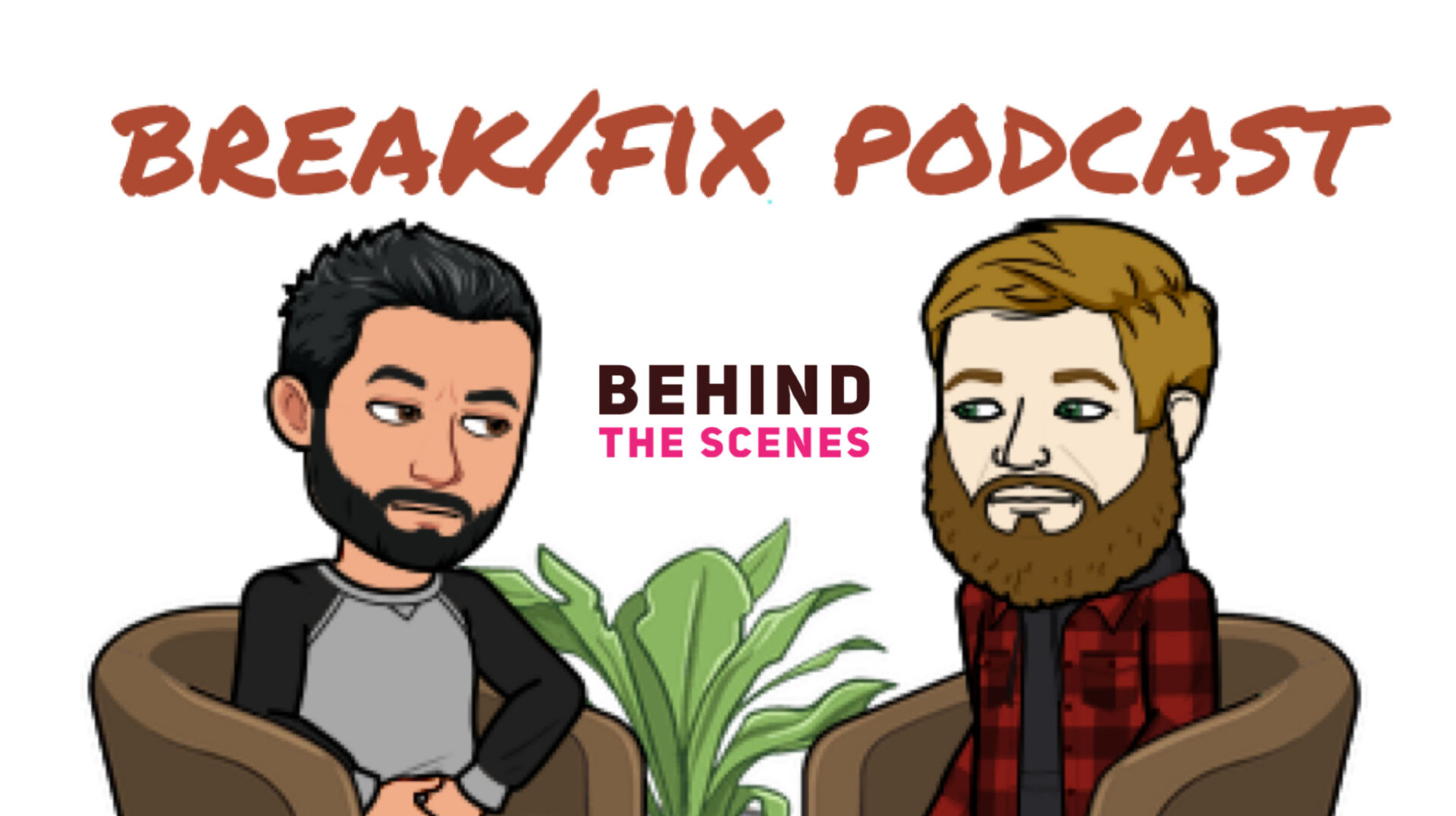
Consider becoming a GTM Patreon Supporter and get behind the scenes content and schwag!
Do you like what you've seen, heard and read? - Don't forget, GTM is fueled by volunteers and remains a no-annual-fee organization, but we still need help to pay to keep the lights on... For as little as $2.50/month you can help us keep the momentum going so we can continue to record, write, edit and broadcast your favorite content. Support GTM today! or make a One Time Donation.
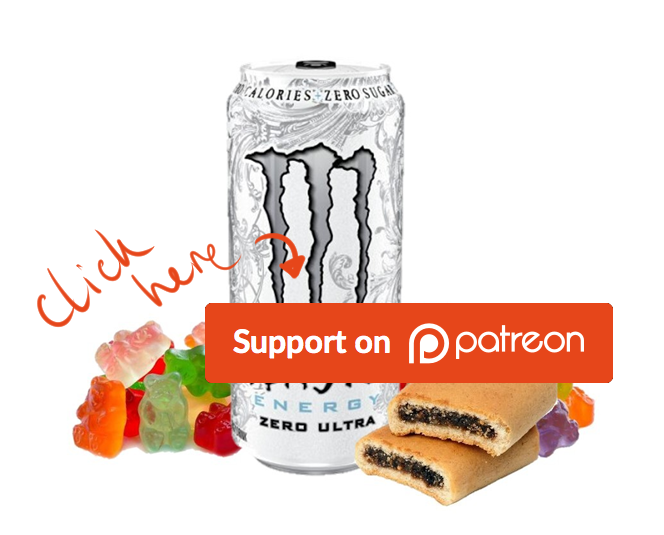
If you enjoyed this episode, please go to Apple Podcasts and leave us a review. That would help us beat the algorithms and help spread the enthusiasm to others by way of Break/Fix and GTM. Subscribe to Break/Fix using your favorite Podcast App:
John Kraman is a man with a real passion for classic and collector cars, he holds his personal collection near and dear, with some of his favorites being a 1964 Pontiac GTO, a 2014 Mustang GT and a 2010 Corvette C6. Outside of his work with Mecum and cars, Kraman enjoys spending time with his wife Christine, four grown children and five grandchildren as well as connecting with his rock ‘n’ roll roots playing guitar and singing in a classic rock trio called “Redline 7000.”
To learn more about John, you can connect with him at www.mecum.com or on social media @carkraman on Twitter, or on LinkedIn; and don’t forget you can tune in every 2 weeks for a new episode of “MECUM on the Move” Podcast hosted by John.
There’s more to this story…
In this special edition of Break/Fix (Part-2 of “The Voice of MECUM with John Kraman” episode), John takes us behind the scenes of MECUM Auctions and shares his pro tips and an inside scoop for auction goers as the former co-Director of consignments and now a commentator for the MECUM TV series on MotorTrend.
Some stories are just too good for the main episode… Check out this Behind the Scenes Pit Stop Minisode! Available exclusively on our Patreon.
This episode has been brought to you by MECUM Auctions the world leader of collector car, vintage and antique motorcycle, and Road Art sales, hosting auctions throughout the United States. The company has specialized in the sale of collector cars for more than 35 years, now offering more than 22,000 lots per year and averaging more than one auction each month. Mecum Auctions is headquartered in Walworth, Wisconsin, and since 2011 has been ranked No. 1 in the world with the number of collector cars offered at auction and is host to the world’s largest collector car auction held annually in Kissimmee, Florida, as well as the largest motorcycle auction held annually in Las Vegas. Mecum’s Road Art and Mecum On Time divisions offer a wide-variety of collectibles for live and online auctions.
This episode is sponsored in part by Garage Style Magazine. Since 2007, GSM has been the definitive source for car collectors, continually delivering information about Automobilia, Petroliana, Events and more… because after all, what doesn’t belong in your garage?
Guest Co-Host: Don Weberg
In case you missed it… be sure to check out the Break/Fix episode with our co-host.


